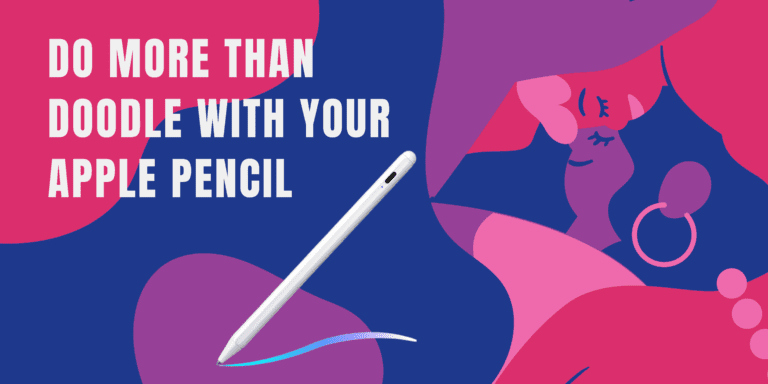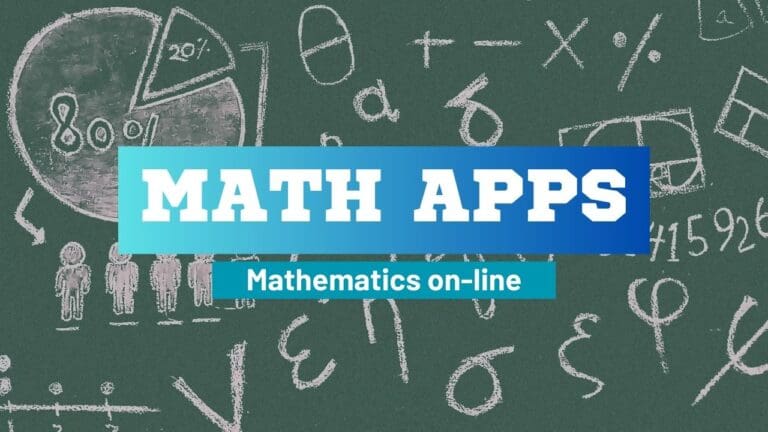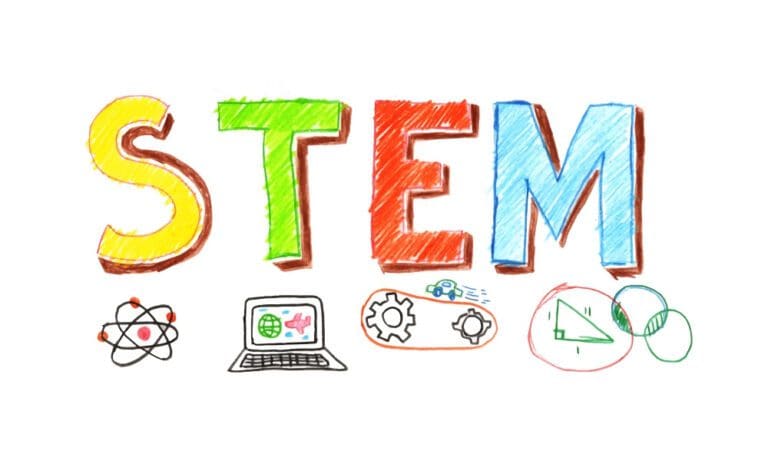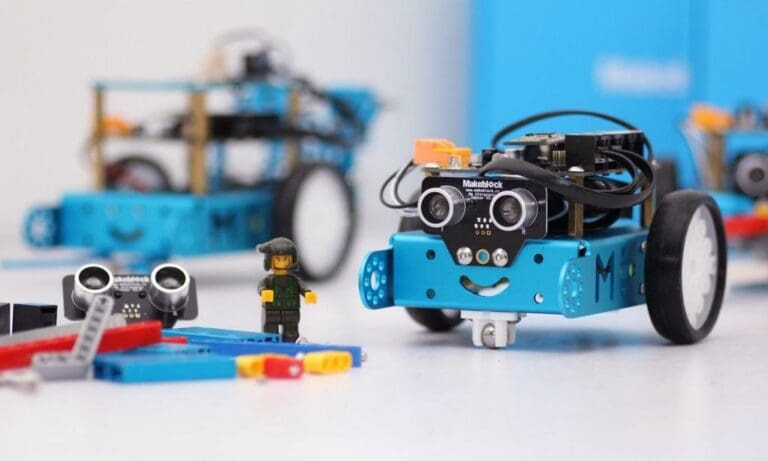Literacy and Reading Apps: A Comprehensive Guide
Are you looking for ways to improve your literacy skills or help your child develop reading abilities? Look no further than literacy and reading apps. With technology becoming increasingly integrated into our daily lives, it’s no surprise that educational apps have become a popular tool for learning.
Reading apps can provide practice with essential skills such as print awareness, phonics, spelling, vocabulary, comprehension, and writing. With so many options available, it can be overwhelming to choose the right one. That’s why we’ve compiled a list of the best literacy and reading apps to help you or your child improve reading abilities and foster a love of learning. From phonics-based apps to interactive storybooks, there’s an app for every skill level and interest.
What are Literacy and Reading Apps?
If you’re looking for a fun and engaging way to help your child build their literacy and reading skills, literacy and reading apps might be just what you need. These apps are designed to provide practice with essential skills such as phonics, vocabulary, comprehension, writing, and more.
Literacy and reading apps can be a great way to supplement your child’s learning and help them develop a love for reading. They are also a convenient way to provide additional practice at home, especially if your child is struggling with a particular skill.
Some of the key features of literacy and reading apps include:
Phonics and Phonemic Awareness
Phonics and phonemic awareness are essential skills for developing strong reading abilities. Many literacy and reading apps include games and activities that focus on these skills, such as identifying letter sounds and blending sounds together to form words.
Vocabulary
Building a strong vocabulary is important for reading comprehension and overall literacy. Many literacy and reading apps include activities that help children learn new words and understand their meanings.
Comprehension
Reading comprehension is the ability to understand and interpret what you read. Many literacy and reading apps include activities that help children develop this skill, such as answering questions about a story or summarizing what they’ve read.
Sight Words
Sight words are words that children should be able to recognize instantly without having to sound them out. Many literacy and reading apps include activities focusing on sight words, such as flashcards or games requiring children to identify and spell these words.
Writing Skills
Writing skills are an important part of literacy development. Many literacy and reading apps include activities that help children develop their writing skills, such as practicing writing letters or creating their own stories.
Fluency
Fluency refers to the ability to read smoothly and accurately. Many literacy and reading apps include activities that help children develop their fluency, such as reading passages aloud and practicing reading at different speeds.
In summary, literacy and reading apps are a convenient and effective way to help your child build their literacy and reading skills. With a variety of activities and games focused on phonics, vocabulary, comprehension, sight words, writing skills, and fluency, these apps can provide a fun and engaging way for your child to develop a love for reading.
The Benefits of Literacy and Reading Apps
Literacy and reading apps offer numerous benefits to young learners. These apps can help improve reading skills, enhance comprehension, build vocabulary, develop writing skills, and promote phonemic awareness. Here are some of the ways literacy and reading apps can help you:
Improving Reading Skills
Reading apps can help you improve your reading skills by providing interactive and engaging activities that encourage you to practice reading. These apps can help you learn to read by teaching you phonics, sight words, and other reading skills. They can also help you improve your reading fluency by providing practice reading passages at your reading level.
Enhancing Comprehension
Comprehension is a critical component of reading. Literacy and reading apps can help you enhance your comprehension skills by providing activities encouraging you to think critically about your reading. These apps can help you learn to identify main ideas, make inferences, and draw conclusions from the text.
Building Vocabulary
Vocabulary is essential for reading comprehension and overall language development. Literacy and reading apps can help you build your vocabulary by providing activities that introduce new words and reinforce their meanings. These apps can also help you learn to use context clues to determine the meaning of unfamiliar words.
Developing Writing Skills
Writing is an essential part of literacy development. Literacy and reading apps can help you develop your writing skills by providing activities that encourage you to write and practice your writing skills. These apps can help you learn to write sentences, paragraphs, and even stories.
Promoting Phonemic Awareness
Phonemic awareness is the ability to hear and manipulate the sounds in words. Literacy and reading apps can help you develop phonemic awareness by providing activities that encourage you to listen to and identify the sounds in words. These apps can help you learn to recognize rhyming words, segment words into sounds, and blend sounds to make words.
In conclusion, literacy and reading apps offer numerous benefits to young learners. These apps can help support phonics, vocabulary, comprehension, writing, language, reading skills, reading comprehension, fluency, phonemic awareness, and sight words. Using these apps can improve your reading skills, enhance your comprehension, build your vocabulary, develop your writing skills, and promote your phonemic awareness.
Types of Literacy and Reading Apps
When it comes to literacy and reading apps, there are several types available that can help you improve your skills in various areas. Here are some of the most common types of literacy and reading apps:
Phonics and Word Recognition Apps
Phonics and word recognition apps are designed to help you improve your ability to recognize and decode words. These apps use various techniques and exercises to help you learn the sounds of letters and how they combine to form words. Some examples of phonics and word recognition apps include ABCmouse, Hooked on Phonics, and Reading Raven.
Reading Comprehension Apps
Reading comprehension apps are designed to help you improve your ability to understand what you read. These apps use various techniques and exercises to help you develop your reading comprehension skills, such as identifying main ideas, making inferences, and drawing conclusions. Some examples of reading comprehension apps include ReadTheory, Newsela, and Scholastic Kids Press Corps.
Vocabulary Building Apps
Vocabulary-building apps are designed to help you improve your vocabulary and expand your knowledge of words. These apps use various techniques and exercises to help you learn new words and their meanings, such as flashcards, quizzes, and games. Some examples of vocabulary-building apps include Duolingo, Quizlet, and Vocabulary.com.
Writing and Grammar Apps
Writing and grammar apps are designed to help you improve your writing skills and learn proper grammar usage. These apps use various techniques and exercises to help you develop your writing skills, such as providing feedback on your writing, offering suggestions for improvement, and teaching you proper grammar rules. Some examples of writing and grammar apps include Grammarly, Hemingway, and ProWritingAid.
Educational Apps for Kids
Educational apps for kids are designed to help children learn and develop various skills, including literacy and reading skills. These apps use various techniques and exercises to help children learn and practice phonics, vocabulary, reading comprehension, and writing skills. Some examples of educational apps for kids include ABCya, Epic!, and Starfall.
In conclusion, various types of literacy and reading apps are available to help you improve your skills in different areas. Whether you are looking to improve your phonics and word recognition skills, reading comprehension skills, vocabulary, writing, or grammar, an app can help you achieve your goals.

Features to Look for in Literacy and Reading Apps
When choosing a literacy or reading app, there are several features to consider that can help you improve your reading skills and make the learning experience more engaging. Here are some of the most important features to look for:
Text-to-Speech
Text-to-speech is a feature that allows the app to read text out loud to you. This can be especially helpful for struggling readers or for those who prefer to listen rather than read. Look for apps that offer high-quality text-to-speech with natural-sounding voices.
Interactive Lessons and Quizzes
Interactive lessons and quizzes can help you learn new concepts and reinforce what you already know. Look for apps that offer a variety of lesson formats, such as videos, games, and interactive activities. Quizzes can also be a great way to test your knowledge and track your progress.
Storytelling and Fluency Practice
Storytelling and fluency practice can help you improve your reading comprehension and fluency. Look for apps that offer a variety of stories and reading passages at different levels of difficulty. Some apps may include features like highlighting or tracking to help you follow the text.
Context and Library Support
Context and library support can help you understand the meaning of words and phrases in context. Look for apps that offer definitions, synonyms, and examples of how words are used in sentences. Some apps may also include access to a library of books or articles for further reading practice.
Videos and Definitions
Videos and definitions can help you learn new words and concepts in a fun and engaging way. Look for apps that offer high-quality videos and animations that explain key concepts and vocabulary words. Definitions should be clear and concise, with examples of how the words are used in context.
Word Games and Puzzles
Word games and puzzles can help you practice your reading skills in a fun and interactive way. Look for apps that offer a variety of games, such as word search, boggle, and crossword puzzles. These games can help you improve your vocabulary, spelling, and word recognition skills.
By considering these features when choosing a literacy or reading app, you can find an app that meets your needs and helps you improve your reading skills.
Top Literacy and Reading Apps for Different Age Groups
When it comes to literacy and reading apps, there are a lot of options out there. It can be overwhelming to try and figure out which ones are the best for your child’s age group and needs. Here are some top literacy and reading apps for different age groups:
Preschool and Kindergarten
Phonics Genius: This app is great for teaching your child phonics and letter recognition. It includes over 6,000 words and pictures to help your child learn to read.
Starfall: Starfall is a classic app for young children learning to read. It includes interactive stories, songs, and games to help your child learn phonics and reading comprehension.
Homer: Homer is an app that offers personalized reading lessons for your child. It includes stories, songs, and games to help your child learn to read and love reading.
Elementary School
Hooked on Phonics: Hooked on Phonics is a well-known app that teaches children to read using phonics. It includes interactive games and stories to help your child learn to read.
Skybrary: Skybrary is an app that offers a library of over 1,000 books for children to read. It includes books for all reading levels and interests.
Reading Rainbow: Reading Rainbow is an app that includes interactive books and videos to help children learn to read and love reading. It includes books for all reading levels and interests.
Middle and High School
Newsela: Newsela is an app that offers news articles at different reading levels. It’s a great way to help your child improve their reading comprehension and keep up with current events.
Epic!: Epic! is an app that offers a library of over 40,000 books for children to read. It includes books for all reading levels and interests.
Quizlet: Quizlet is an app that offers flashcards and quizzes to help students learn vocabulary and other subjects. It’s a great way to improve reading comprehension and retention.
English Language Learners
Duolingo: Duolingo is an app that offers language lessons in over 30 languages. It’s a great way to help English Language Learners improve their reading and writing skills.
Rosetta Stone: Rosetta Stone is an app that offers language lessons in over 25 languages. It’s a great way to help English Language Learners improve their reading and writing skills.
Babbel: Babbel is an app that offers language lessons in 14 different languages. It’s a great way to help English Language Learners improve their reading and writing skills.
Students with Dyslexia
Learning Ally: Learning Ally is an app that offers audiobooks for students with dyslexia. It’s a great way to help them improve their reading comprehension and keep up with their classmates.
Voice Dream Reader: Voice Dream Reader is an app that offers text-to-speech for students with dyslexia. It’s a great way to help them improve their reading comprehension and keep up with their classmates.
Snap&Read: Snap&Read is an app that offers text-to-speech and other reading tools for students with dyslexia. It’s a great way to help them improve their reading comprehension and keep up with their classmates.
Overall, there are a lot of great literacy and reading apps out there for children of all ages and needs. These are just a few of the top apps to consider.
Factors to Consider When Choosing Literacy and Reading Apps
When choosing literacy and reading apps for your child, there are several factors to consider. These factors will help you make an informed decision and choose an app that is appropriate for your child’s needs. Here are some important factors to consider:
Grade Level and Common Core State Standards
One of the first things to consider when choosing a literacy or reading app is your child’s grade level. Many apps are designed for specific grade levels, so choosing an app appropriate for your child’s age and reading level is important. Additionally, you may want to consider whether the app aligns with Common Core State Standards. This will ensure that your child is learning the skills and concepts that are expected for their grade level.
Multi-Sensory Approach
Another important factor to consider is whether the app uses a multi-sensory approach. This means that the app engages multiple senses, such as sight and sound, to help your child learn. Research has shown that a multi-sensory approach can be especially effective for children with reading difficulties, such as dyslexia.
Screen Time and Balance
It’s important to consider how much screen time your child gets when using literacy and reading apps. While these apps can be a great tool for learning, it’s important to balance screen time with other activities, such as outdoor play and social interaction. Additionally, you may want to consider setting limits on screen time and using the app in moderation.
Free Trial and Evaluation
Before committing to a literacy or reading app, it’s a good idea to take advantage of any free trials that are available. This will give you an opportunity to evaluate the app and determine whether it is a good fit for your child. Additionally, you may want to read reviews and ratings from other parents and educators to get a sense of the app’s effectiveness and ease of use.
In summary, when choosing literacy and reading apps, it’s important to consider factors such as grade level, multi-sensory approach, screen time and balance, and free trial and evaluation. By considering these factors, you can choose an app that is appropriate for your child’s needs and supports their learning and development.
Conclusion
In conclusion, literacy and reading apps can be valuable tools to enhance reading skills and comprehension. With the help of these apps, you can improve your vocabulary, grammar, and writing skills.
One of the biggest advantages of literacy apps is that they can be customized to meet your specific needs. You can choose from various apps catering to different age groups, reading levels, and learning styles. Some apps focus on phonics, fluency, and spelling, while others focus on comprehension and writing.
Another benefit of literacy apps is that they are interactive and engaging. Many apps use gamification techniques to make learning fun and exciting. You can earn badges, rewards, and points for completing tasks, which can motivate you to keep learning.
However, it is important to note that literacy apps should not be a replacement for traditional reading methods. While apps can be a helpful supplement, reading physical books and engaging in other reading activities is still important.
Overall, literacy and reading apps can be useful tools to improve your reading skills and comprehension. Choosing the right app and using it consistently can enhance your literacy skills and help you become a better reader.
FAQ
What is a good app to learn how you read?
There are many apps available that can help you learn how to read. Some popular apps include:
- ABCmouse
- Hooked on Phonics
- Starfall
- Reading Eggs
- Teach Your Monster to Read
These apps provide a fun and interactive way to learn phonics, vocabulary, comprehension, and writing skills. They are designed to engage children and help them develop a love for reading.
Is there an app to improve reading skills?
Yes, there are many apps available to help improve reading skills. Some popular apps include:
- Readability
- News-O-Matic
- Fluency Tutor
- Read&Write
- Learning Ally
These apps provide a range of features such as text-to-speech, highlighting, and note-taking to help improve reading speed, comprehension, and fluency.
Is there a free reading app for kids?
Yes, there are several free reading apps available for kids. Some popular free reading apps include:
- Epic
- ReadingIQ
- Vooks
- Libby
- Hoopla
These apps provide access to a wide range of books, audiobooks, and other reading materials for children of all ages.
Is Epic reading free?
Epic is a popular reading app for kids that offers a free trial period of 30 days. After the trial period, you will need to subscribe to the app to continue using it. However, some schools and libraries may offer free access to Epic for their students and members.
Can I use Raz Kids for free?
Raz-Kids is a popular reading app for kids that offers a free trial period of 14 days. After the trial period, you will need to subscribe to the app to continue using it. However, some schools and libraries may offer free access to Raz-Kids for their students and members.







